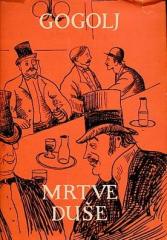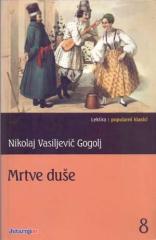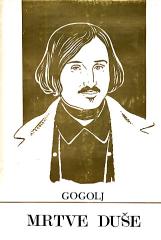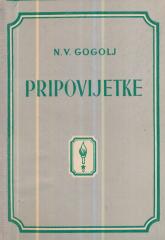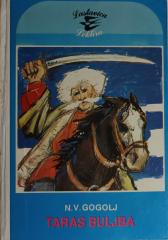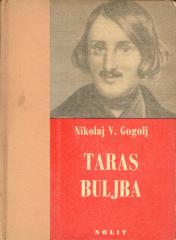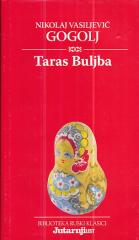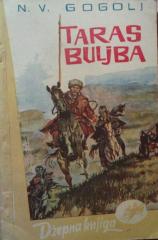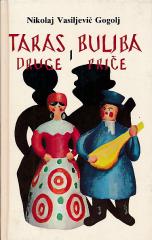Nikolaj Vasiljevič Gogolj
Nikolai Vasilyevich Gogol (1809–1852), a Russian writer of Ukrainian origin, is one of the key writers of the 19th century, known for his satire, grotesque, and mixture of realism and fantasy. Born in Sorochintsy, Ukraine, to a family of lesser nobility, Gogol was educated in Nezhin, where he developed an interest in literature and theater. Moving to Saint Petersburg in 1828, he worked as a clerk, but devoted himself to writing.
His first significant works, the short story collections Evenings on a Farm Near Dikanka (1831–1832), incorporate Ukrainian folk motifs with elements of fantasy. This was followed by the collections Mirgorod (1835) and Arabian Tales, which include stories such as Taras Bulba and The Nose, known for their humor and social criticism. The novel Dead Souls (1842) is his masterpiece, a satire on the corruption and moral decay of imperial Russia. The comedy The Inspector General (1836) satirizes bureaucracy and greed, becoming a classic of Russian theater.
Gogol later fell into a spiritual crisis, influenced by religious beliefs, and burned the manuscripts of the second part of Dead Souls. His last work, Selected Excerpts from Correspondence with Friends (1847), caused controversy due to its conservative views. He died in Moscow in 1852, tormented by illness and fasting.
Titles in our offer
Čičikovljeve pustolovine ili Mrtve duše
The novel "Dead Souls" was originally conceived as a poem in 3 parts, based on Dante's Divine Comedy divided into three parts: hell, purgatory and paradise, but he wrote only one, published in 1842, and 5 fragments of the second part.
Mrtve duše
Dead Souls (1842) is a brilliant satire that exposes the moral and social rot of imperial Russia through Chichikov's fraud with dead serfs, with Gogol's virtuoso mix of humor, irony and lyricism.
Mrtve duše
Dead Souls (1842) is a brilliant satire that exposes the moral and social rot of imperial Russia through Chichikov's fraud with dead serfs, with Gogol's virtuoso mix of humor, irony and lyricism.
Pripovijetke
A classic Croatian edition with a selection of the most famous stories by Gogol - a master storyteller who combines humor, the grotesque, fantasy, and deep social satire.
Taras Buljba
Taras Buljba
"Taras Bulba" is a short historical novel by Nikolai Vasilievich Gogol from the series "Mirgorod".
Taras Buljba
Taras Bulba is a short historical novel by Nikolai Vasilyevich Gogol from the Mirgorod cycle. The plot of the novel concerns the history of the Zaporozhian Cossacks.
